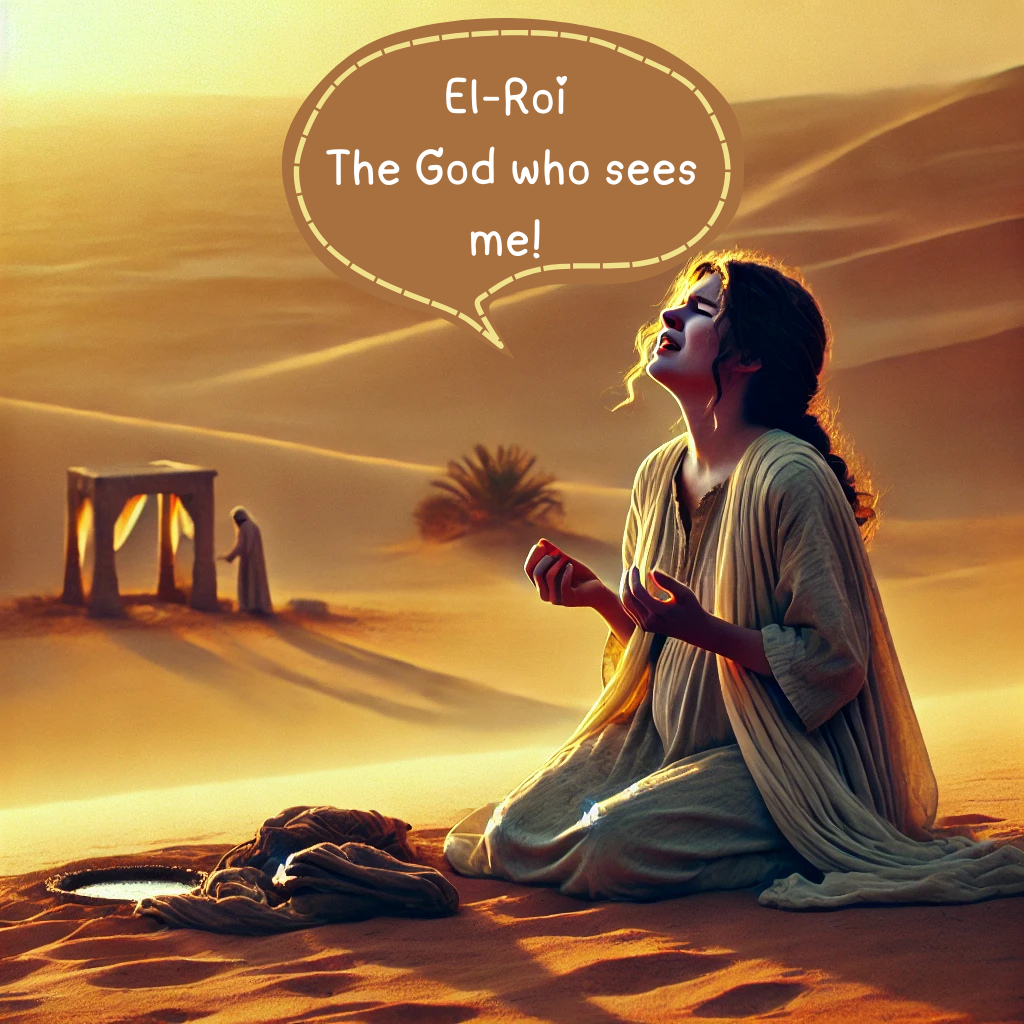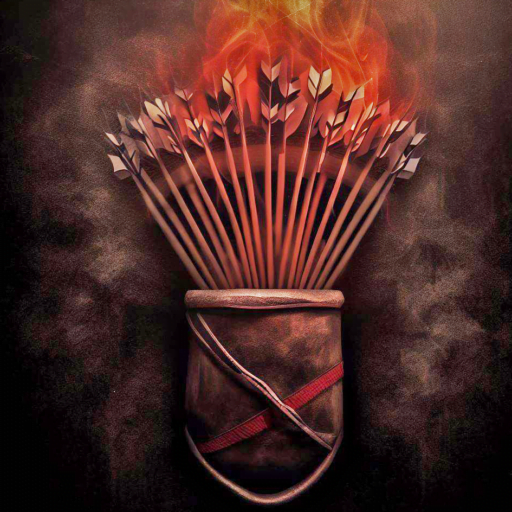
We know that God provides for all. Jesus Himself said, “Look at the birds of the air; they do not sow or reap or store away in barns, and yet your heavenly Father feeds them. Are you not much more valuable than they?” (Matthew 6:26, NIV). He also said, “See how the lilies of the field grow. They do not labour or spin. Yet I tell you that not even Solomon in all his splendour was dressed like one of these.” (Matthew 6:28-29, NIV). In this, God reminds us not to worry excessively about ourselves, for our heavenly Father will take care of us. We are more valuable to Him than the birds of the air or the flowers of the field.
As the year ends, we can reflect on how God has cared for us and how beautiful His provisions have been. Today, let us look at God as our Provider and the way He cares for His people.
She gave this name to the Lord who spoke to her: ‘You are the God who sees me,’ for she said, ‘I have now seen the One who sees me.’ (Genesis 16:13, NIV).
Hagar, a servant of Sarai, became pregnant by Abraham because Sarai desired a child. However, as soon as Sarai saw that Hagar was pregnant, she began to torment her. When the torment became unbearable, Hagar fled from her mistress. But God, who sees everything, noticed her plight. The angel of the Lord appeared to her, strengthened her, and instructed her to return to her mistress and submit to her authority. The angel also assured her that the child she was carrying would be blessed. Strengthened by this encounter, Hagar named God El-Roi—“the God who sees me.”
For Hagar, this moment was monumental. She had witnessed God’s blessings upon Abraham and may have thought that God cared only for him. She might have felt overlooked or even harboured resentment towards God, considering the mistreatment she endured at the hands of Abraham and Sarai. Yet, God proved otherwise. He saw her, cared for her, and blessed her. This personal encounter with God transformed her understanding of Him.
Today’s generation might say, “Because God’s children are not good, they are vile, and we are better than them, there’s no need to serve the God they serve.” It is a known fact that when we hold a grudge against someone, we often extend that grudge to everything associated with them. In the same way, Hagar might have harboured some resentment toward the Lord Almighty because her master and mistress, who worshipped God and appeared pious before everyone, mistreated her. God used to answer them, so she might have thought that He wouldn’t care about her or hear her prayers. But when she experienced God coming to her aid, blessing her, and speaking to her directly, she was overwhelmed and named Him El-Roi—“the God who sees me.”
Hagar naming God is a significant act when you realize that Abraham had yet to name God Jehovah-Jireh. Naming God is an important part of worship—it signifies a personal relationship with God and an intimate understanding of His nature, something that sets the individual apart in their knowledge of God. Therefore, when Hagar named God El-Roi, meaning “the God who sees me,” it was a profound declaration. This was a big deal for Hagar, as it marked her own personal encounter with God.
God heard the boy crying, and the angel of God called to Hagar from heaven and said to her, “What is the matter, Hagar? Do not be afraid; God has heard the boy crying as he lies there. Lift the boy up and take him by the hand, for I will make him into a great nation.” Then God opened her eyes and she saw a well of water. So she went and filled the skin with water and gave the boy a drink. Genesis 21:17-19
Here we see that after Ishmael was born, Hagar could no longer live with Sarah and Abraham. Abraham sent her and Ishmael away. Once again, she cried, unable to bear the thought of watching her son die. But God responded and opened her eyes to the spring He had provided. The interesting question God asks Hagar is, “What happened to you?” “Aren’t you the one who once said, ‘God sees’? Yet here you are, sitting hopeless and helpless, thinking there is no one to help you. Don’t you know that I see?”
Many times, when God provides, we praise Him and feel joy for our relationship with Him. But later, when another problem arises in our lives, we forget how God had helped us. We forget the names we gave God and the God we once knew. Instead, we cry and lose faith. In those moments, God asks us, “What happened to you?”
Jephthah the Gileadite was a mighty warrior. His father was Gilead; his mother was a prostitute. Gilead’s wife also bore him sons, and when they were grown up, they drove Jephthah away. “You are not going to get any inheritance in our family,” they said, “because you are the son of another woman.” So Jephthah fled from his brothers and settled in the land of Tob, where a gang of adventurers gathered around him and followed him. Judges 11:1-3
Jephthah was a warrior and the son of a prostitute. Because of this, his friends and family drove him away. However, since he was a warrior, he made a living by raiding villages. His status as a warrior also earned him followers. So, wasn’t Jephthah’s role as a warrior God’s provision to him?
But Jephthah didn’t want to be known as a raider for the rest of his life. He didn’t want to lead worthless followers forever. When the Israelites faced a problem, they remembered Jephthah the warrior and sought his help. At that time, he demanded to be made their leader, and the people agreed to follow him.
Today, we may have provisions that we feel are insufficient or not valuable. We may be labelled, just as Jephthah was called a “raider” or “leader of worthless men.” But there will come a time when we understand the true value of God’s provision. Until that time, it is our responsibility to nurture God’s provision, to recognize its value, and to never underestimate it.
Manna was God’s provision for the Israelites as they travelled through the desert. But were they satisfied with it? No, they asked for more. They wanted meat, and God provided for them. But that meat never entered the Ark of the Covenant. God provided the Israelites with many things, such as water in the desert, even from a rock. But God did not tell them to place a glass of water or meat in the Ark of the Covenant. Instead, He told them to place the manna in it. This is because certain provisions of God are far more important than others. They serve as symbols rather than simply answers to complaints or desires.
If God considers these provisions important, shouldn’t we also consider them important? Don’t we have the responsibility to treat God’s provision with respect? Aren’t we supposed to be content with what God provides?
As the new year approaches, let’s decide that we will remember God’s provision. Like Hagar, who forgot the name she gave God, we will not forget. Like Jephthah’s provision, which gained greater meaning, we too will understand the true meaning of God’s provision in due time. We will not undervalue God’s provision. El-Roi sees everyone in the Quiver of God.



May God bless you all..